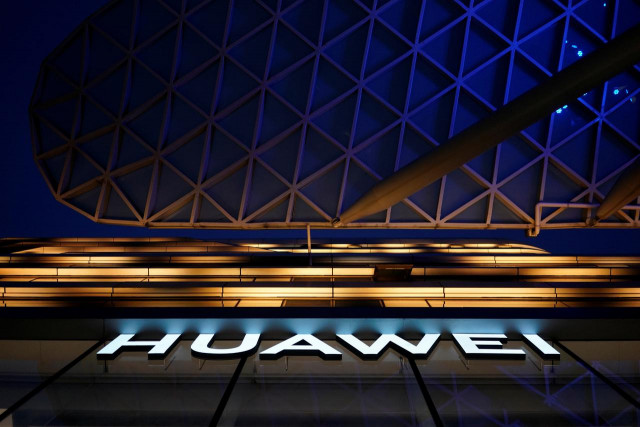US unveils procedure to shield telecom networks from national security threats
The Trump administration added Huawei to its trade blacklist in May

PHOTO: FILE
US President Donald Trump issued an executive order in May declaring a national emergency and barring US companies from using telecommunications equipment made by firms posing national security risks. The order was widely seen as being aimed at Chinese firms such as telecoms equipment market leader Huawei and ZTE Corp.
The Trump administration added Huawei to its trade blacklist in May, citing national security concerns, but has issued licenses to allow some US companies to continue to do business with the world’s second-largest smartphone maker, a leader in next-generation 5G network technology.
The Commerce Department said Tuesday that Secretary Wilbur Ross had chosen to adopt a “case-by-case, fact-specific approach to determine which transactions must be prohibited, or which can be mitigated.”
Huawei first-half revenue up about 30% despite US ban
The outlined approach, in a proposed rule, does not mention either Huawei or ZTE.
“These actions will safeguard the Information and Communications Technology Supply Chain,” said Ross said in a statement. “These rules demonstrate our commitment to securing the digital economy, while also delivering on President Trump’s commitment to our digital infrastructure.
Trump’s May order invoked the International Emergency Economic Powers Act, which gives the president authority to regulate commerce in response to a threat to the United States.
It directed the Commerce Department, working with other government agencies, to draw up an enforcement plan by October.
Trump’s order said Ross, in consultation with other US agencies, can bar transactions from firms connected to “a foreign adversary” that pose a national security risk, including those that “pose an undue risk of sabotage or subversion.”
The Commerce Department said the procedure unveiled Tuesday is open to public comment before it becomes final, but that the determination of “foreign adversaries” is solely at Ross’s discretion. It also gives Ross the power to immediately prohibit or revise transactions that pose national security risks.
Huawei pushes 5G in SEAsia, brushing off ‘tech war’ with US
On Friday, the US Federal Communications Commission voted unanimously to designate Huawei and ZTE as national security risks, barring their US rural carrier customers from tapping an $8.5 billion government fund to purchase Huawei or ZTE equipment.
Huawei argued the FCC’s decision was based on “nothing more than irrational speculation and innuendo.” China said on Monday the United States should stop abusing the concept of national security and abusing Chinese companies.

















COMMENTS
Comments are moderated and generally will be posted if they are on-topic and not abusive.
For more information, please see our Comments FAQ